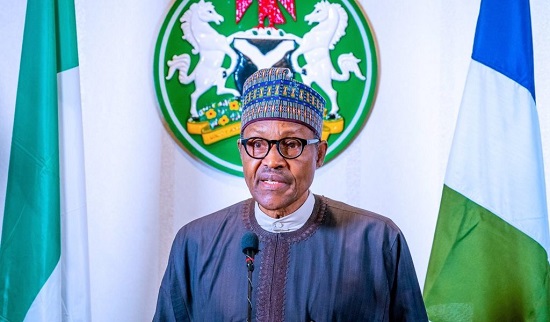Anyone wondering why the heavy loan portfolio of the Federal Government appears a mismatch of visible projects may not need to dig too far, going by revelations emanating lately from the Senate. The recent allegation of a misappropriation of external loans by officials in the Office of the Accountant General of the Federation (OAGF) to the tune of US$274.2 million or approximately N54 billion smells sour and very disturbing. For one thing, it seems to indicate a culture of mismanagement of loans meant for public purposes; and for another, it signposts a failure of the Buhari government’s anti-corruption campaign. Either or both ways, the revelation is damning for government.
The reports have suddenly made it clear why and how external loans are being wasted with not much to show for the humongous loans being procured by the Muhammadu Buhari administration since 2015. These are acts of corruption which call for thorough investigation, more so under an administration that prides itself as a corrective regime in the cleaning of the Augean stable. Such stories of corrupt practices are totally unexpected under the watch of a President who had in the past repeatedly said that “if Nigeria does not kill corruption, corruption will kill Nigeria.” Indeed, corruption is steadily killing Nigeria even under the watch of President Muhammadu Buhari. The indicators including the Transparency International Corruption Perception Index are looking downwards and have been worse than the rankings under the previous Goodluck Jonathan administration.
This issue of the recent mismanagement of external loans came to the fore in the report of Senate Committee on Public Accounts, under the Chairmanship of Senator Matthew Urhoghide. The entire Senate had approved the report and called on Ahmed Idris, the Accountant General of the Federation (AGF) to identify and sanction the culprits in accordance with Rule 3115 of the Financial Regulations for gross misconduct. The indictment was made obvious by the report of the Auditor-General of the Federation (AuGF) titled “Inconsistent Exchange Loss Difference on External Loans” and which read that “During the examination of Note 51 and Appendix to Note 52, it was observed that there was a total exchange loss difference of $278.2 million (N54.1 billion) reported by the Office of the Accountant- General of the Federation in the document provided, but this could not be found in the DMO document… Also, the criteria for arriving at the exchange loss difference of $274.2 million (N54.1 billion) were not disclosed.”
This pilfering of public resources may not be peculiar to the Office of the Accountant General of the Federation.
Feelers from the various hearings at the National Assembly and the various reports of the Auditor-General of the Federation over the years clearly indicate that these incidences are rife in virtually all the Ministries, Departments and Agencies (MDAs) of government that one wonders whether the anti-corruption programme ab-initio had any concerted plan and strategy to fight corruption, aside from the noise and media trials occasionally displayed, which some regard as mere entertainment and comic relief to the Nigerian public. It can be recalled that the Senate Committee on Public Accounts has unearthed many such corruption acts in the MDAs with lots of public funds being reported to have been frittered away continuously.
These incidences take different shapes. At some times, funds are not remitted to the national coffers by the MDAs. At other times, the remitted funds get mismanaged all through the project cycle such that what eventually turns out to be used in the actual execution of projects is a very small proportion of the total project sum. How can a nation develop under such an unhealthy and unwieldy financial management condition? No nation develops when there are lots of leakages in the management of public funds.
There is a need to look at the fight against corruption from a totally new perspective. The work should not just be left to the EFCC and the ICPC alone. Internal control mechanisms need to be strengthened at the level of the MDAs. The National Assembly also is not without blame in all of these. The leadership of the National Assembly appear to have collapsed because they approve loans without questions. The lacklustre approach adopted in the procurement of new foreign loans need to be jettisoned. Proper scrutiny and justifications need to be provided before new loans are approved. Frivolous approvals for new loan commitments are injurious to the economic health of the nation.
From all these, it appears that the anti-graft programme under Buhari has failed. Nothing has changed in the management of public resources. In fact, it has been business as usual and the situation has actually worsened. There is leadership failure and a deficit of integrity in the management of the country’s economic governance. This is not what the ruling All Progressives Congress (APC) promised the Nigerian electorate. What is going on now is not what the constitution demands of public officers. There is the need for thorough investigation and prosecution of erring public officials and the enforcement of the law as appropriate, in all cases.



